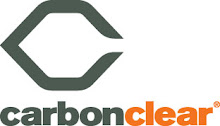Hardly a day goes by without more dire warnings about the impacts of climate change.
Last week, however, there was some good news. The Intergovernmental Panel on Climate Change (IPCC) issued a
report stating that we could take action to avoid the worst impacts of climate change at negligible cost. They pointed out that there are a host of practical carbon-reducing solutions that will actually save people money and make their lives easier. There are other measures we can take that cost a little more than current practice - but result in much less climate pollution.
So good news, at last. But "negligible" doesn't mean the same thing to everyone. A family in Ethiopia might need only $50-$100 (£27-£55) to buy an improved stove that will save ten tonnes of CO2 over its lifetime. To save the same amount with a solar water heater would cost a UK household at least £1,700 - and the Government is cutting its subsidies for renewable energy.
Businesses face the same challenge. While companies need to take responsiblity for their emissions, it can be difficult to convince the finance department to invest in a new heating and cooling system when other initiatives are competing for scarce funds. We may have to save up for a couple of years to enact some measures - it's hard to reduce your impact to zero overnight.
And while the cost might be "negligible" to us, that $100 clean cook stove might seem impossibly expensive to someone who earns just a few dollars per day.
Carbon offsets help bridge the gap. As far as global warming is concerned, it doesn't matter whether the CO2 comes from a car in America, a power plant in Britain, or a cookstove in Ethiopia. But each dollar or pound we spend in, for example, Ethiopia will achieve a greater carbon reduction than in the other two cases. cleaning up that cookstove provides the added benefit of reducing energy poverty and improving health in a poor community. Carbon offset payments provide funding for these kinds of practical, highly effective carbon reduction solutions. So you can balance out your unavoidable emissions now, while gearing up to make bigger changes at home.
If we work together, we may prove the IPCC right and make a real difference in reducing our global carbon impact.
(Carbon Clear Homepage)

